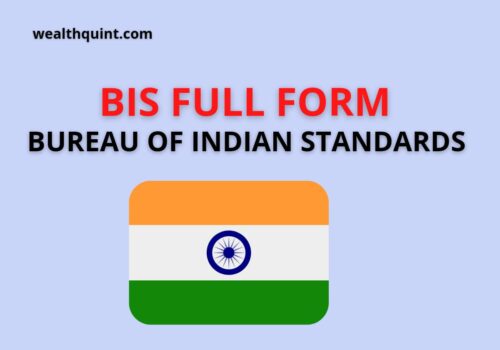What Is The Full Form Of SEBI?
SEBI Full Form is Securities and Exchange Board of India
Securities and Exchange Board of India is popularly referred to as SEBI. On the 12th day of April 1992, SEBI was instituted as a regulatory body in India.
This regulatory body monitors the security market as well as the Indian capital markets. SEBI also makes sure to protect the interest of Investors. This monitoring body protects the investors by forming guidelines and rules.
SEBI manages its duties and powers from its head office in Bandra Kurla Complex, Mumbai. It has several regional offices around the various cities of India such as Delhi, Kolkata, Chennai, and Ahmedabad, along with other local, regional offices.
SEBI’s Structure
Securities and Exchange Board of India works on a Hierarchical basis similar to any other business entity or organization. Securities and Exchange Board of India also consists of several departments that are as follows:
- Foreign Portfolio Investors and Custodians
- Commodity and Derivative Market Regulation Department
- Office of International Affairs
- Information Technology
- Foreign Portfolio Investors and Custodians
- Human Resources Department
- National Institute of Securities Market
Members Of Securities And Exchange Board Of India
Besides the Head of departments, the management of SEBI is formed with various members as the Board of Directors. The members of the Board of Directors are as follows:
- 1 chairperson and 5 members
- Two members employed by the Indian Union Finance Ministry
- Reserve Bank of India employs one member of the SEBI organization.
Functions Of SEBI
As per the SEBI ACT 1992, this monitoring body has numerous functions to prevent violations and unethical actions of violators. Such functions are as follows:
- Safeguard the investor’s interest in the market of securities.
- It encourages the advancement of the market of securities.
- Provide a safe platform to investment advisers, portfolio managers, trustees of trust deeds, sub-brokers, stockbrokers, share transfer agents, merchant bankers, underwriters, registrars, bankers, and more persons to monitor and register work.
- Prevents insider trading, and fraudulent activities of violators
- SEBI monitors R&D to make sure the advancement of the securities market
- It guarantees that investors in the securities markets are educated.
- It controls large shares acquisitions & the takeover of several companies to prevent malpractices.
- SEBI manages the activities of foreign portfolio investors, participants, credit rating agencies, depositories, and custodians of securities.
SEBI’s Powers
As mentioned above, the Securities and Exchange Board of India is a regulating as well as a monitoring body. It has some unique powers to fulfill its duties.
Such special powers are as follows:
- Quasi Legislative Powers
As per the quasi-legislative powers of SEBI, it also has the authority to form regulations and guidelines to safeguard the investor’s interest. The major responsibilities of SEBI are listing obligations, insider trading, and setting rules regarding disclosure requirements.
These rules help to prevent malpractices and unethical actions of violators in the securities markets.
- Quasi-Judicial Powers
In cases of unethical practices or fraud in the securities market, the regulatory body also has the quasi-judicial powers to deliver judgments.
The quasi-judicial powers are effective in maintaining an environment of transparency, accountability, and fairness in the markets of securities.
- Quasi Executive Powers
The Securities and Exchange Board of India has the authority to execute the rules and decisions given in the cases of fraud. To enforce proper legal action against the individual’s unethical actions and violations, the quasi executive powers of SEBI play a significant role.
As per the quasi-executive powers, SEBI also has the authority to check accounts and several other necessary documents if any violation or unethical practice has come across SEBI.




